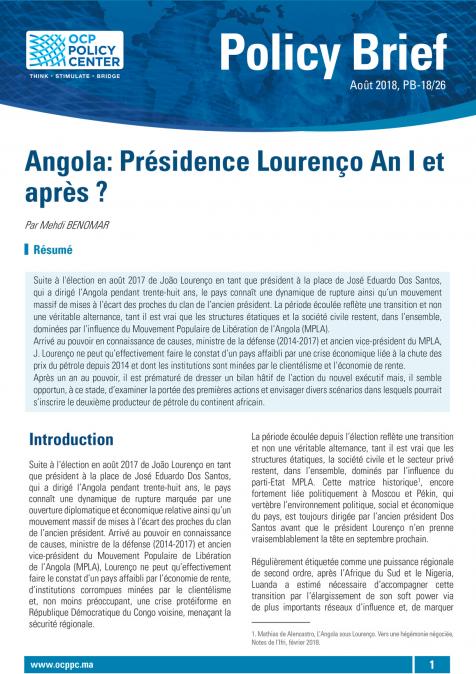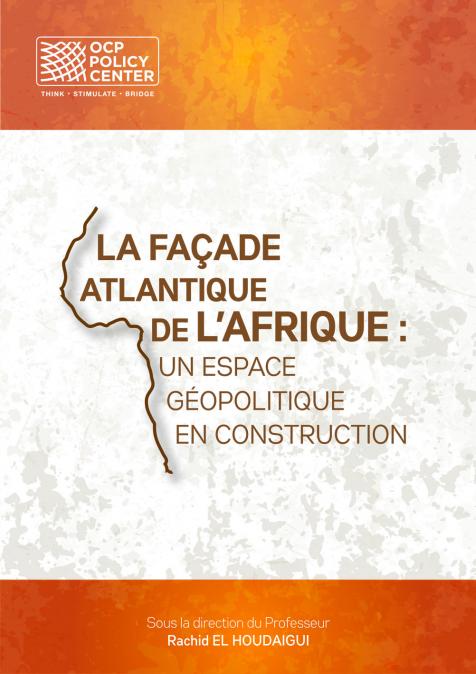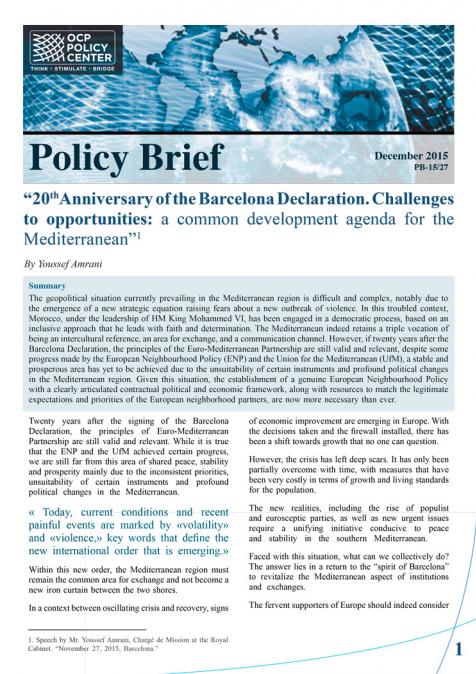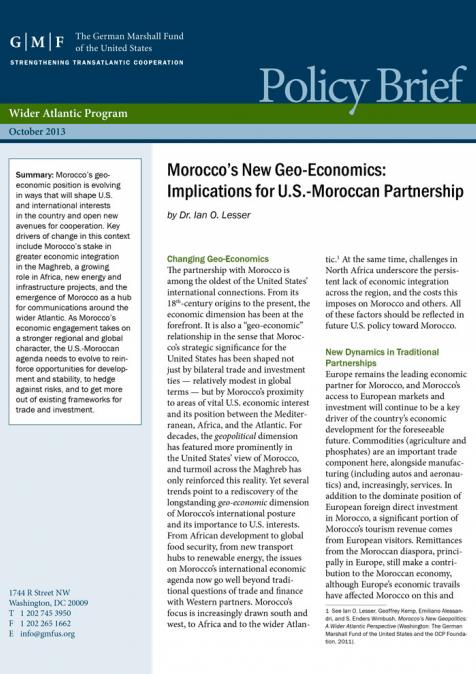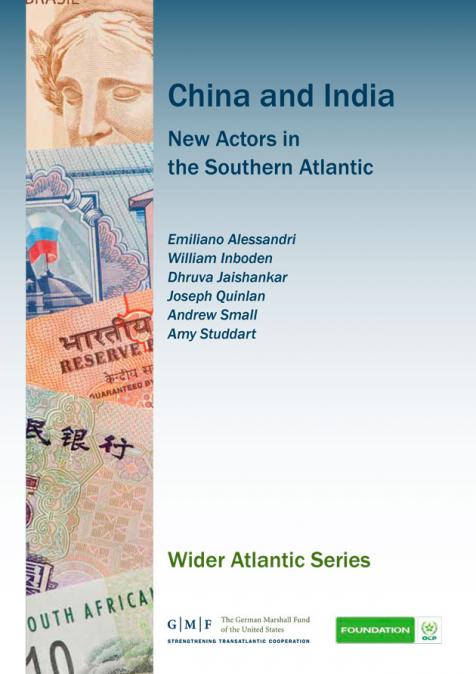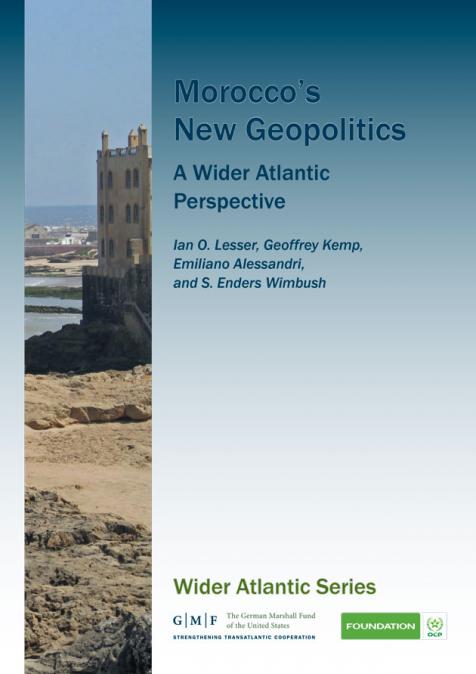Publications /
Policy Brief
Suite à l'élection en août 2017 de João Lourenço en tant que président à la place de José Eduardo Dos Santos, qui a dirigé l’Angola pendant trente-huit ans, le pays connaît une dynamique de rupture ainsi qu’un mouvement massif de mises à l’écart des proches du clan de l’ancien président. La période écoulée reflète une transition et non une véritable alternance, tant il est vrai que les structures étatiques et la société civile restent, dans l’ensemble, dominées par l’influence du Mouvement Populaire de Libération de l’Angola (MPLA). Arrivé au pouvoir en connaissance de causes, ministre de la défense (2014-2017) et ancien vice-président du MPLA, J. Lourenço ne peut qu’effectivement faire le constat d’un pays affaibli par une crise économique liée à la chute des prix du pétrole depuis 2014 et dont les institutions sont minées par le clientélisme et l’économie de rente. Après un an au pouvoir, il est prématuré de dresser un bilan hâtif de l’action du nouvel exécutif mais, il semble opportun, à ce stade, d’examiner la portée des premières actions et envisager divers scénarios dans lesquels pourrait s’inscrire le deuxième producteur de pétrole du continent africain.

